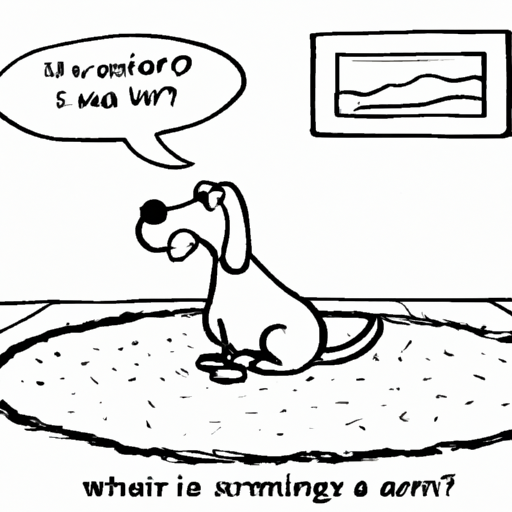Understanding Your Dog’s Behavior
Hello there, Caregiver. You might be wondering why your beloved pet suddenly started to pee inside your house. It’s not just because they’re being naughty or trying to get on your nerves. Dogs, like humans, communicate their feelings, fears, and health issues through their behavior. Urinating inside the house could be your furry friend’s way of telling you something. Let’s delve into it.
Medical Reasons Behind the Behavior
Sometimes, your dog’s indoor peeing could be due to a medical issue.
- Urinary tract infections (UTIs): They can cause increased frequency of urination and an urgent need to urinate, making it harder for your dog to hold it in until they’re outside.
- Diabetes and Kidney Disease: These conditions can increase your dog’s thirst leading to more frequent urination.
- Age-related issues: As dogs age, they may develop cognitive dysfunction or physical ailments that make it difficult for them to reach their usual bathroom spot in time.
| Medical Issues | Symptoms |
|---|---|
| Urinary Tract Infection | Frequent urination, discomfort |
| Diabetes | Increased thirst, weight loss |
| Kidney Disease | Vomiting, lack of appetite |
| Age-related Issues | Confusion, difficulty moving |
Behavioral Reasons for the Act
Aside from health problems, there are a few behavioral reasons that might explain your dog’s actions.
- Fear or Anxiety: Sometimes, dogs pee when they’re scared or anxious. This could be triggered by loud noises, new people, or changes in their environment.
- Marking Territory: Dogs often use their urine to mark their territory. This behavior is more common in male dogs, but females can also mark, especially if they feel threatened.
- Submissive urination: Some dogs will urinate when they’re feeling submissive or want to show respect to a more dominant individual. This is often seen in puppies or more timid dogs.
Training and Prevention
The good news is, with patience and understanding, it’s entirely possible to curb this behavior.
- Consistent Schedule: Maintain a regular feeding and bathroom schedule. This helps your dog understand when and where it’s appropriate to pee.
- Positive Reinforcement: Reward your dog with treats and praises when they pee outside. This encourages them to repeat the behavior.
- Seek Professional Help: If the problem persists, don’t hesitate to seek help from a professional dog trainer or behaviorist.
Frequently Asked Questions
Q: What should I do if my dog has a medical issue?
A: If you suspect your dog’s indoor urination is due to a medical issue, consult with your vet immediately.
Q: How can I help my anxious dog?
A: Create a safe space for them in your house, keep a calm environment, and consider seeking advice from a vet or animal behaviorist.
Q: Will punishing my dog help?
A: No, punishment can often exacerbate the problem by creating more fear or anxiety.
Your journey as a caregiver can be a rollercoaster of emotions. But with love, patience, and understanding, you can navigate through every twist and turn, ensuring a happy and healthy life for your furry friend.



